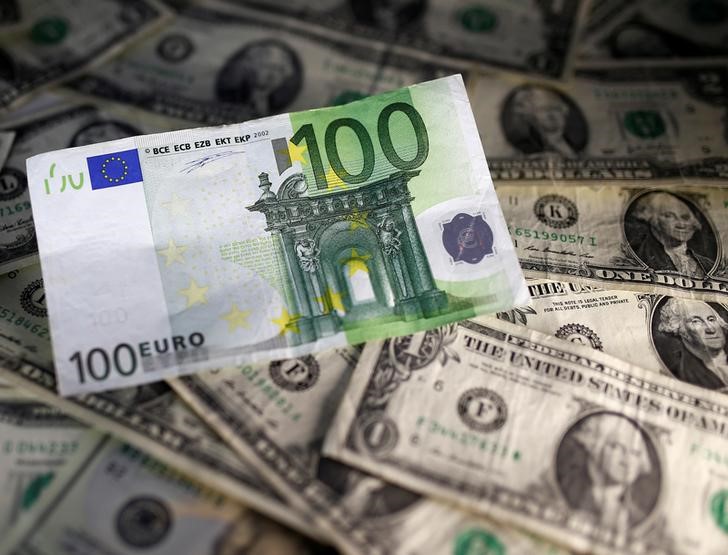By Jemima Kelly and Patrick Graham
LONDON (Reuters) - The euro slipped to a 11-day low against the dollar on Monday after German inflation data came in slightly weaker than expected, which took some pressure off the European Central Bank to wind down its stimulus program.
Having earlier traded lower on concerns over a travel ban implemented by U.S. President Donald Trump, the euro's fall helped the dollar index - which measures the greenback against a basket of other major currencies - climb half a percent to above 101 for the first time in 10 days (DXY).
The latest figures showed German consumer price inflation hit 1.9 percent in January. While that was the highest in three-and-a-half years, it was slightly below forecasts for a 2 percent annual rise.
A sustained recovery in German inflation would give Bundesbank President and ECB rate-setter Jens Weidmann more scope to argue for winding down the ECB's bond-buying program more quickly.
Against the yen, though, the dollar remained weak, trading down 0.4 percent at 114.27 yen
"The euro move may be related to the German data, which were a fair bit softer than expected... The euro would normally go up in a risk-off environment," said RBC Capital Markets currency strategist Adam Cole, in London.
"Dollar/yen is still lower which is consistent with markets being risk-off," he added, pointing out that currencies usually seen as more risky, like the Australian and New Zealand dollars
Trump's temporary ban on entry of refugees and people from seven Muslim-majority countries faced mounting criticism over the weekend, even from some prominent Republicans, and sparked protests that drew tens of thousands in major American cities.
A stronger dollar was one of 2017's big calls for many investment banks and asset managers at the end of last year, but that faith has been undermined by worries about how U.S. trade and diplomacy will pan out under Trump's presidency.
At the top of the list are concerns that the new administration may actively pursue a weaker dollar as part of efforts to change its trading relationship with China and others.
The dollar had also been weakened by weaker-than-expected U.S. economic growth data on Friday.
"The weak U.S. GDP is doing the dollar no favors. But it also takes courage to keep buying the dollar, considering what Trump has said about the kind of a currency policy he could pursue," said Daisuke Karakama, market economist at Mizuho Bank in Tokyo.

For Reuters Live Markets blog on European and UK stock markets see reuters://realtime/verb=Open/url=http://emea1.apps.cp.extranet.thomsonreuters.biz/cms/?pageId=livemarkets